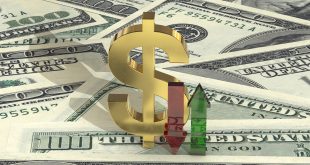US Stocks gave back earlier gains on Wednesday as investors put an end to the new year’s rally, now in its third week. The latest reversal could be attributed to a combination of fluctuations as well as skittishness and profit taking.
The Dow Jones Industrial Average fell 436 points, or 1.3%, while the S&P 500 lost 1%. The Nasdaq Composite lost 0.8% and was on pace for its first down day in the last eight.
Stocks had such a strong start to the year, but now they are amid a tense earnings season, recently got weaker data, including retail sales and yesterday’s Empire State Manufacturing Survey.
On the policy front, the Fed meeting on February 1 is looming. There is not one single reason to get aggressive here, but all of those factors above suggest that caution is a good option in the near term.
Microsoft announced plans to lay off about 10,000 employees, which hurt investor sentiment. The stock fell and dragged the Dow lower with it.
Investors were also digesting the latest reading on the producer price index, which measures input costs from companies. The PPI showed a 0.5% decline for December. Economists surveyed by Dow Jones expected a 0.1% decline. That briefly gave relief to investors who have hoped for inflation to retreat and for the Federal Reserve to slow its rate-hiking campaign.
Declining prices were also reflected in retail sales, which fell 1.1% in December, slightly more than the 1% forecast.
Investors have been enjoying strong upward momentum for stocks since the start of the year, although many have begun to doubt the market’s strength. The Dow is still higher by 1% for the month, while the S&P and Nasdaq are still up by 3% and 5%, respectively.

 Noor Trends News, Technical Analysis, Educational Tools and Recommendations
Noor Trends News, Technical Analysis, Educational Tools and Recommendations




